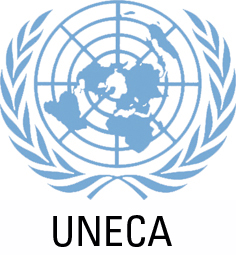Focal point
Location
P.O. Box 3001
Addis Ababa, Ethiopia
Established by the Economic and Social Council (ECOSOC) of the United Nations (UN) in 1958 as one of the UN's five regional commissions, ECA's mandate is to promote the economic and social development of its member States, foster intra-regional integration, and promote international cooperation for Africa's development.
Made up of 54 member States, and playing a dual role as a regional arm of the UN and as a key component of the African institutional landscape, ECA is well positioned to make unique contributions to address the Continent’s development challenges.
ECA’s thematic areas of focus are as follows:
- Macroeconomic Policy
- Regional Integration and Trade
- Social Development
- Natural Resources
- Innovation and Technology
- Gender
- Governance
Members:
Resources
Displaying 851 - 855 of 872Palm kernels and palm oil : recent world market trends in relation to stabilization problems and policies
Africa produces roughly four-fifths of world' oil palm products and contributes a similar proportion to world exports. The oil palm (Elaois guinoonsis) is thought to be native to West Africa, where it is mainly exploited by small producers. Estate planting is mostly confined to the Congo (Leopoldville), where plantations under European management wore first established around 50 years ago and at present produce about one-third of the Congolese palm oil.
The formulation and evaluation of agricultural projects in Africa
The object of this paper is to emphasize some of the special characteristics of agricultural projects particularly in Africa and put forward a general- outline for their formulation and appraisal with the hope that more projects in future will be examined in a comprehensive fashion. Although some of the details may not be applicable, or may not be available, for the wide variety of projects which fall within the agricultural field the general considerations should apply to all of them.
The formulation and evaluation of agricultural projects in Africa
The object of this paper is to emphasize some of the special characteristics of agricultural projects particularly in Africa and put forward a general- outline for their formulation and appraisal with the hope that more projects in future will be examined in a comprehensive fashion. Although some of the details may not be applicable, or may not be available, for the wide variety of projects which fall within the agricultural field the general considerations should apply to all of them.
The food and agricultural situation in Africa
In Kenya drought sharply reduced the maize crop, causing famine
conditions in some areas, towards the relief of which surplus maize
was donated by the United States. In the rest of east Africa the effects
of the drought were less servere, but some food products wera in short
supply in Uganda and thera were crop failures in parts of Tanganyika. ^
Coffee and sisal production increased substantially in Kenya, reflecting
the progress of 'African production under the Swynnerton Plan. In Uganda
The food and agricultural situation in Africa
In Kenya drought sharply reduced the maize crop, causing famine
conditions in some areas, towards the relief of which surplus maize
was donated by the United States. In the rest of east Africa the effects
of the drought were less servere, but some food products wera in short
supply in Uganda and thera were crop failures in parts of Tanganyika. ^
Coffee and sisal production increased substantially in Kenya, reflecting
the progress of 'African production under the Swynnerton Plan. In Uganda


